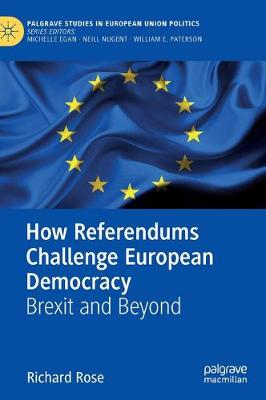Palgrave Studies in European Union Politics
1 total work
This book explains how citizens are using referendums to challenge decisions taken by the European Union. The opening chapters compare the two chief institutions of electoral democracy: parliamentary elections to decide who governs, and referendums to decide policies. The EU relies on international treaties for its authority to make policies. Chapters analysing referendum voting on Europe in Britain, Greece and the Netherlands show that cultural values can have a stronger influence than class. The book uses Brexit - the British referendum in which a majority voted for the UK leaving the European Union - as the leading example of a conflict between national voters and the EU. However, taking back control of policymaking does not ensure effective policymaking when success depends not only on what the British Parliament does but also on decisions taken in Brussels, Washington and elsewhere. Boris Johnson's electoral success is insufficient to deliver all his promises in the world beyond Brexit. The EU is challenged too, as its policies increasingly depend on what happens on other continents.
